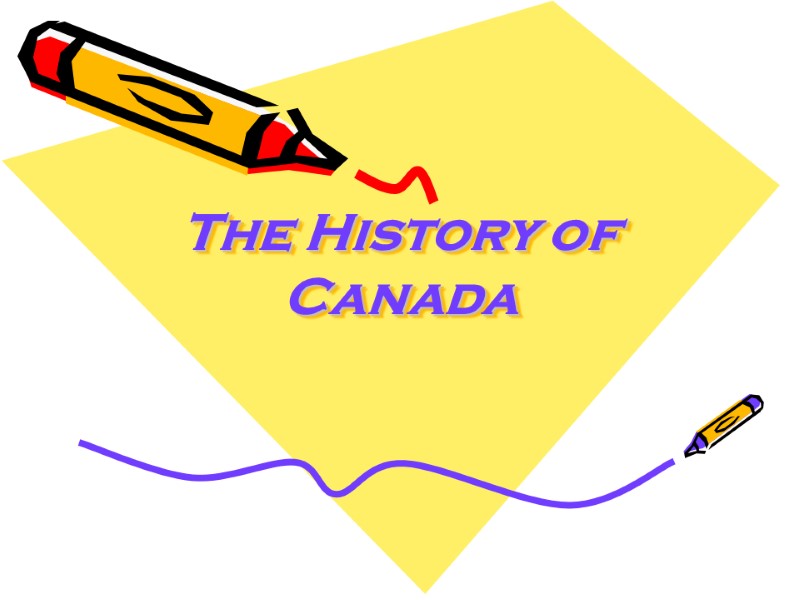 The History of Canada
The History of Canada
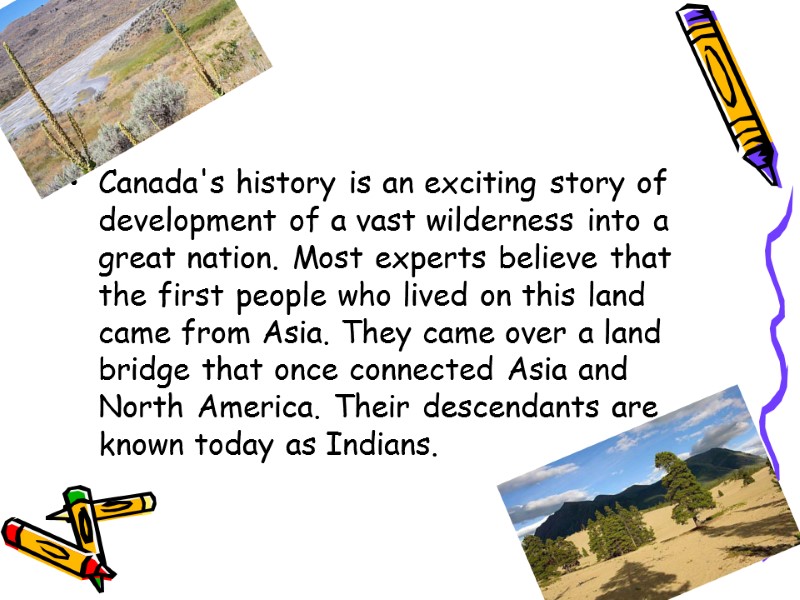 Canada's history is an exciting story of development of a vast wilderness into a great nation. Most experts believe that the first people who lived on this land came from Asia. They came over a land bridge that once connected Asia and North America. Their descendants are known today as Indians.
Canada's history is an exciting story of development of a vast wilderness into a great nation. Most experts believe that the first people who lived on this land came from Asia. They came over a land bridge that once connected Asia and North America. Their descendants are known today as Indians.
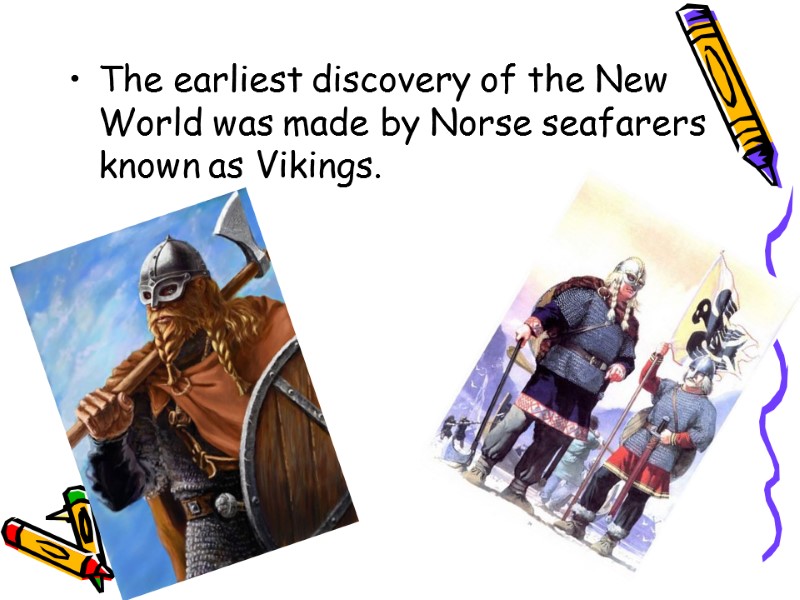 The earliest discovery of the New World was made by Norse seafarers known as Vikings.
The earliest discovery of the New World was made by Norse seafarers known as Vikings.
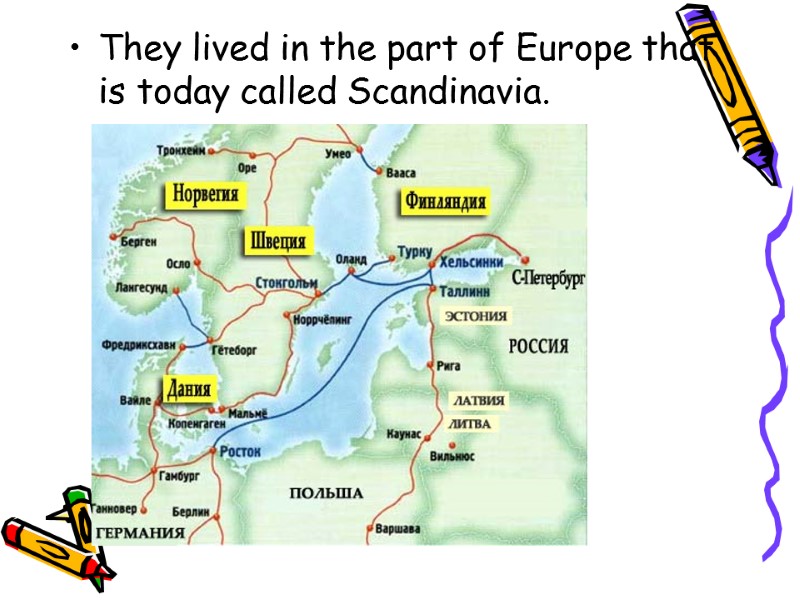 They lived in the part of Europe that is today called Scandinavia.
They lived in the part of Europe that is today called Scandinavia.
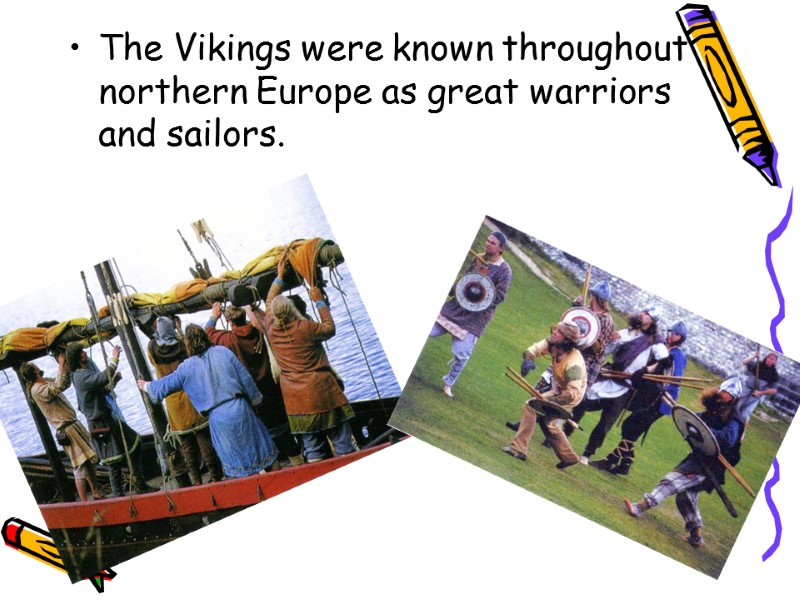 The Vikings were known throughout northern Europe as great warriors and sailors.
The Vikings were known throughout northern Europe as great warriors and sailors.
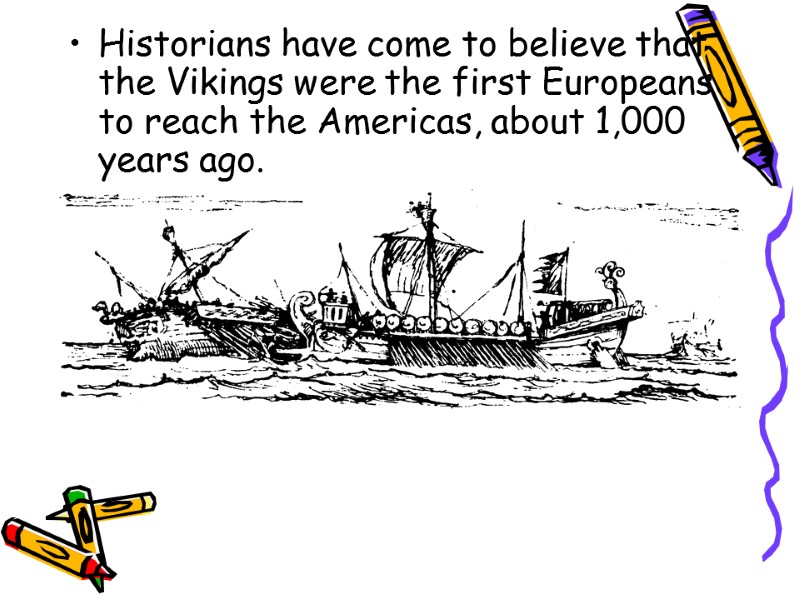 Historians have come to believe that the Vikings were the first Europeans to reach the Americas, about 1,000 years ago.
Historians have come to believe that the Vikings were the first Europeans to reach the Americas, about 1,000 years ago.
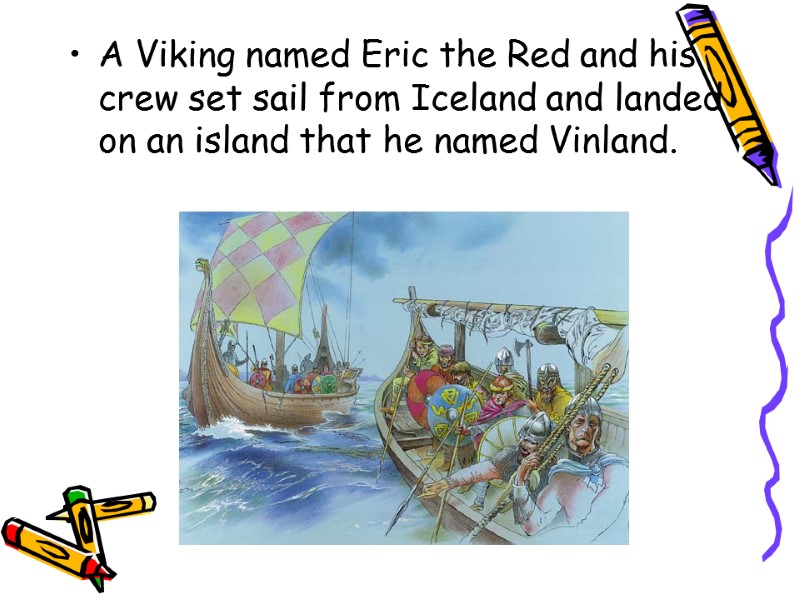 A Viking named Eric the Red and his crew set sail from Iceland and landed on an island that he named Vinland.
A Viking named Eric the Red and his crew set sail from Iceland and landed on an island that he named Vinland.
 It was called Vinland because of the abundance of green vines found there.
It was called Vinland because of the abundance of green vines found there.
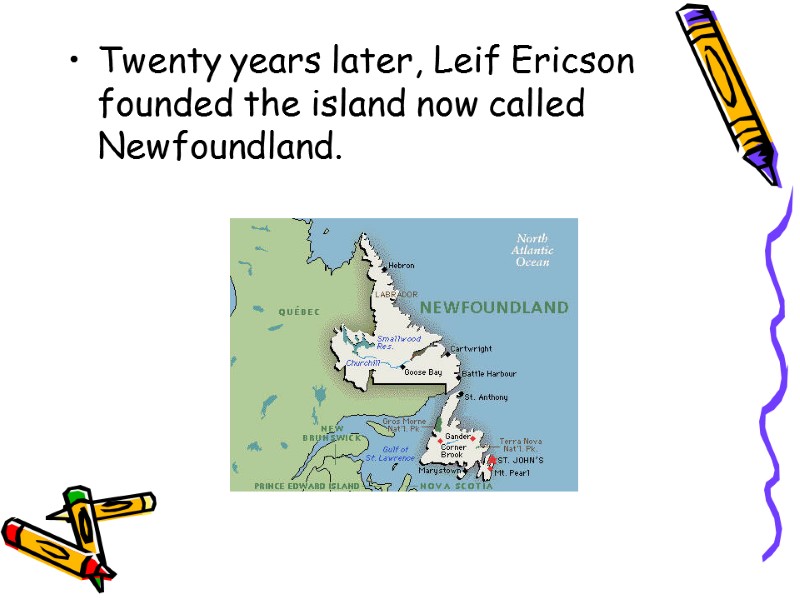 Twenty years later, Leif Ericson founded the island now called Newfoundland.
Twenty years later, Leif Ericson founded the island now called Newfoundland.
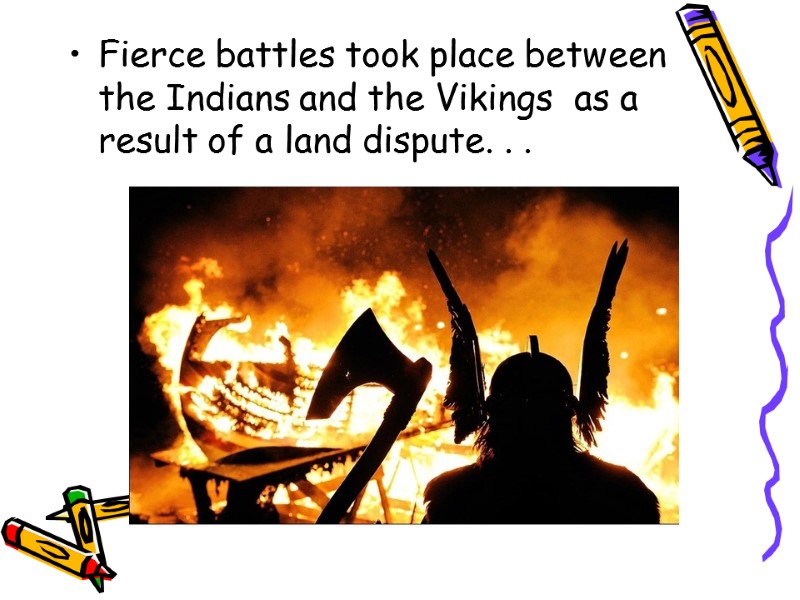 Fierce battles took place between the Indians and the Vikings as a result of a land dispute. . .
Fierce battles took place between the Indians and the Vikings as a result of a land dispute. . .
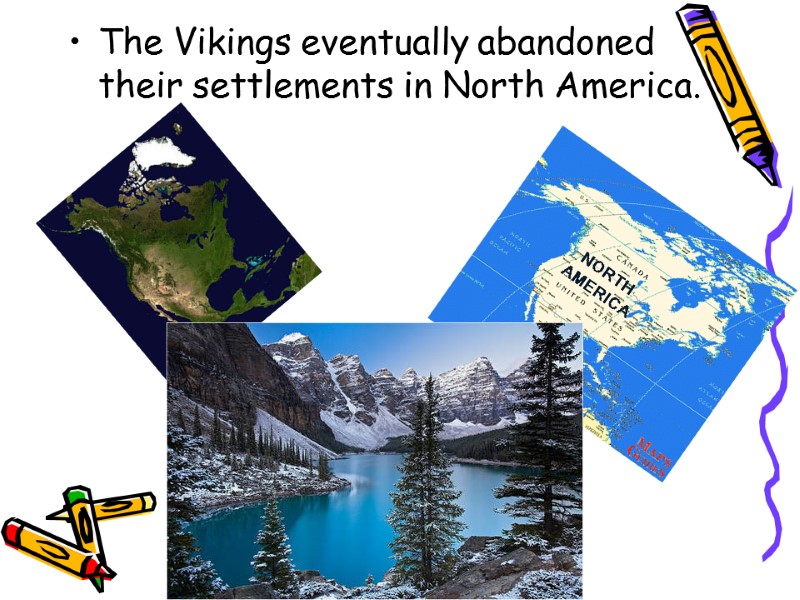 The Vikings eventually abandoned their settlements in North America.
The Vikings eventually abandoned their settlements in North America.
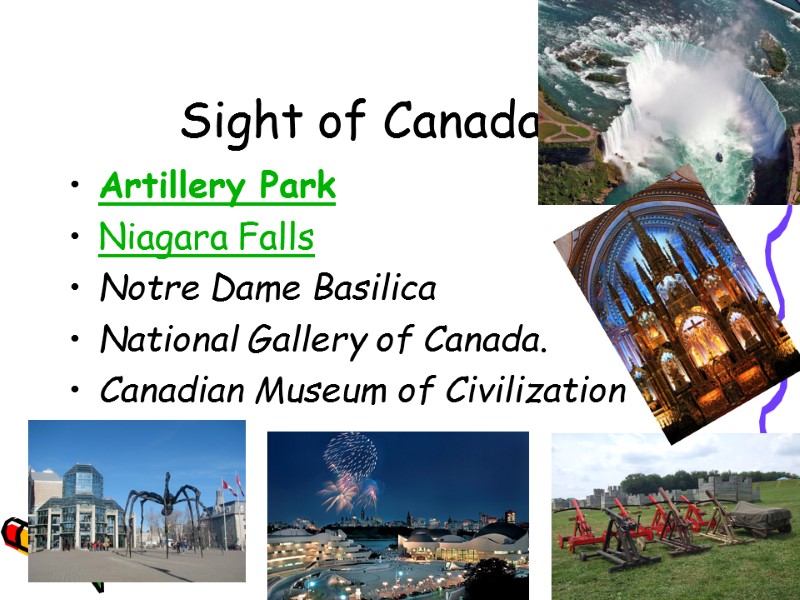 Sight of Canada Artillery Park Niagara Falls Notre Dame Basilica National Gallery of Canada. Canadian Museum of Civilization
Sight of Canada Artillery Park Niagara Falls Notre Dame Basilica National Gallery of Canada. Canadian Museum of Civilization
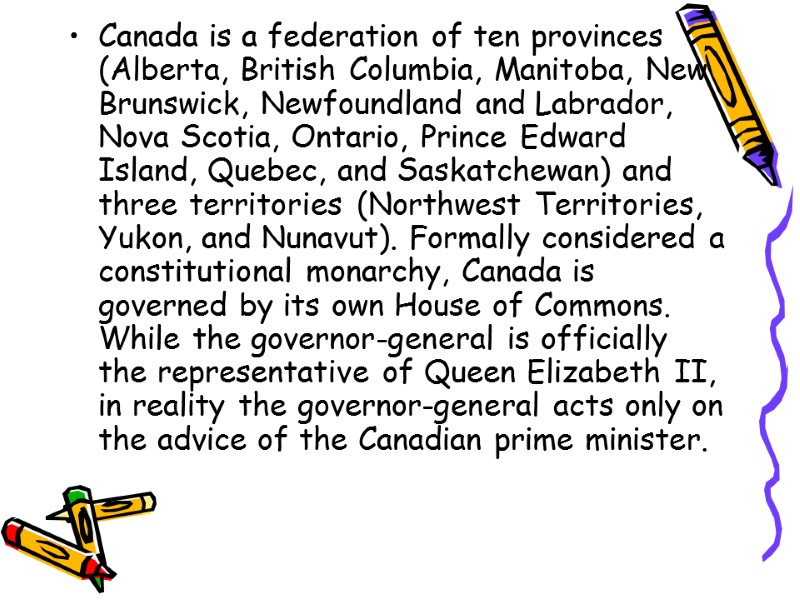 Canada is a federation of ten provinces (Alberta, British Columbia, Manitoba, New Brunswick, Newfoundland and Labrador, Nova Scotia, Ontario, Prince Edward Island, Quebec, and Saskatchewan) and three territories (Northwest Territories, Yukon, and Nunavut). Formally considered a constitutional monarchy, Canada is governed by its own House of Commons. While the governor-general is officially the representative of Queen Elizabeth II, in reality the governor-general acts only on the advice of the Canadian prime minister.
Canada is a federation of ten provinces (Alberta, British Columbia, Manitoba, New Brunswick, Newfoundland and Labrador, Nova Scotia, Ontario, Prince Edward Island, Quebec, and Saskatchewan) and three territories (Northwest Territories, Yukon, and Nunavut). Formally considered a constitutional monarchy, Canada is governed by its own House of Commons. While the governor-general is officially the representative of Queen Elizabeth II, in reality the governor-general acts only on the advice of the Canadian prime minister.
 Thanks for attention
Thanks for attention





























